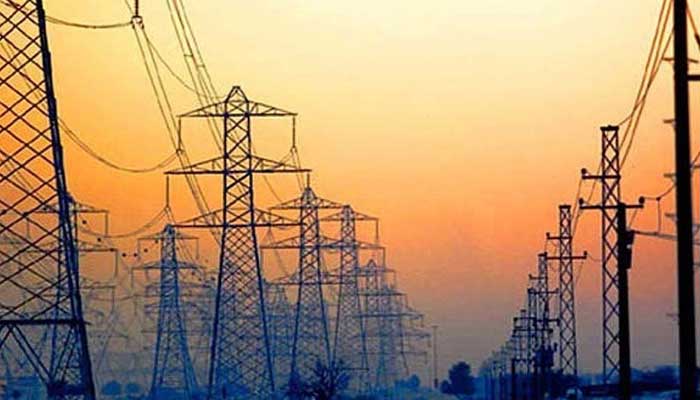Relief in power tariff to large industry: SMEs to be financed through Covid-19 Fund
ISLAMABAD: The industrial package with discount in power tariff by 25-50 percent announced here on Tuesday by Prime Minister Imran Khan will be financed from the Covid-19 Fund.
The electric power tariff on incremental consumption of electricity by large scale manufacturing industry has been reduced by 25 percent and 50 percent for medium enterprises (SMEs) from November 1, 2020. More importantly, the peak hour tariff has also been scratched.
“We have estimated the loss in revenue in the next eight months at about Rs 25-30 billion, which will be funded through the Covid-19 fund,” a senior official of the Power Division told The News. “We have worked out some assumptions under which 500-700MWs more electricity will be utilized in the next eight months by the large industry and small medium enterprises (SMEs) that will provide to some extent solace to the government in terms of capacity payments."
Federal Energy Minister Umar Ayub Khan confirmed to The News that the loss in revenue that the Power Division will brave on account of discounted tariff to industry and SMEs will be financed by the Covid Fund and to this effect, the IMF has given its nod to the government. He said that when the first wave of Covid-19 hit the country, the Finance Ministry had allocated some amount under the Covid Fund for the loss it braved on account of closure of all industrial, and commercial activities due to lockdown but the situation improved and an amount of Rs21 billion in the Covid Fund remained unspent. The loss will be borne through that fund.
However, the official said that the government has decreased the power tariff on additional use of electricity for large scale industry by 25 percent to Rs12.9 per unit from Rs18 per unit for the next three years from November 1, 2020. And the tariff for Small Medium Enterprises has been reduced from Rs16 to Rs8 per unit till June 2021 and after that it will be reassessed if the package for SMEs will continue or not.
The official said that the loss by the power sector will be funded from the Covid-19 Relief Fund. However, with the relief package, the industrial activities will pick up momentum generating more jobs. The business community will come out of uncertainty and will be able to carve out their business plans and expand their existing facilities when they have firm power tariff at lower side for the next three years for additional electricity use. The doing away with the peak hour tariff will allure businessmen to run their industrial plants 24/7 as their cost of doing business will also go down. And this is how the government is going to put Pakistan on the way to industrialisation. In return of the government’s industrial package, the economic activities in the country will accelerate and the government will have a reasonable increase in tax collection.
The official said that the government was facing the biggest challenge of capacity charges payments and with reduction in tariff, the electricity consumption by the industrial sector will increase. And this will help reduce the burden of capacity payments to some extent. When power plants are not operational, then capacity payment stands at Rs4.9 per unit and in case it is operational, then it comes down to Rs2.75 per unit.
-
 Critics Target Palace Narrative After Andrew's Controversy Refuses To Die
Critics Target Palace Narrative After Andrew's Controversy Refuses To Die -
 Sarah Ferguson’s Delusions Take A Turn For The Worse: ‘She’s Been Deserted’
Sarah Ferguson’s Delusions Take A Turn For The Worse: ‘She’s Been Deserted’ -
 ICE Agents 'fake Car Trouble' To Arrest Minnesota Man, Family Says
ICE Agents 'fake Car Trouble' To Arrest Minnesota Man, Family Says -
 Camila Mendes Reveals How She Prepared For Her Role In 'Idiotka'
Camila Mendes Reveals How She Prepared For Her Role In 'Idiotka' -
 China Confirms Visa-free Travel For UK, Canada Nationals
China Confirms Visa-free Travel For UK, Canada Nationals -
 Inside Sarah Ferguson, Andrew Windsor's Emotional Collapse After Epstein Fallout
Inside Sarah Ferguson, Andrew Windsor's Emotional Collapse After Epstein Fallout -
 Bad Bunny's Star Power Explodes Tourism Searches For His Hometown
Bad Bunny's Star Power Explodes Tourism Searches For His Hometown -
 Jennifer Aniston Gives Peek Into Love Life With Cryptic Snap Of Jim Curtis
Jennifer Aniston Gives Peek Into Love Life With Cryptic Snap Of Jim Curtis -
 Prince Harry Turns Diana Into Content: ‘It Would Have Appalled Her To Be Repackaged For Profit’
Prince Harry Turns Diana Into Content: ‘It Would Have Appalled Her To Be Repackaged For Profit’ -
 Prince William's Love For His Three Children Revealed During Family Crisis
Prince William's Love For His Three Children Revealed During Family Crisis -
 Murder Suspect Kills Himself After Woman Found Dead In Missouri
Murder Suspect Kills Himself After Woman Found Dead In Missouri -
 Sarah Ferguson's Plea To Jeffrey Epstein Exposed In New Files
Sarah Ferguson's Plea To Jeffrey Epstein Exposed In New Files -
 Prince William Prepares For War Against Prince Harry: Nothing Is Off The Table Not Legal Ways Or His Influence
Prince William Prepares For War Against Prince Harry: Nothing Is Off The Table Not Legal Ways Or His Influence -
 'How To Get Away With Murder' Star Karla Souza Is Still Friends With THIS Costar
'How To Get Away With Murder' Star Karla Souza Is Still Friends With THIS Costar -
 Pal Reveals Prince William’s ‘disorienting’ Turmoil Over Kate’s Cancer: ‘You Saw In His Eyes & The Way He Held Himself’
Pal Reveals Prince William’s ‘disorienting’ Turmoil Over Kate’s Cancer: ‘You Saw In His Eyes & The Way He Held Himself’ -
 Poll Reveals Majority Of Americans' Views On Bad Bunny
Poll Reveals Majority Of Americans' Views On Bad Bunny




